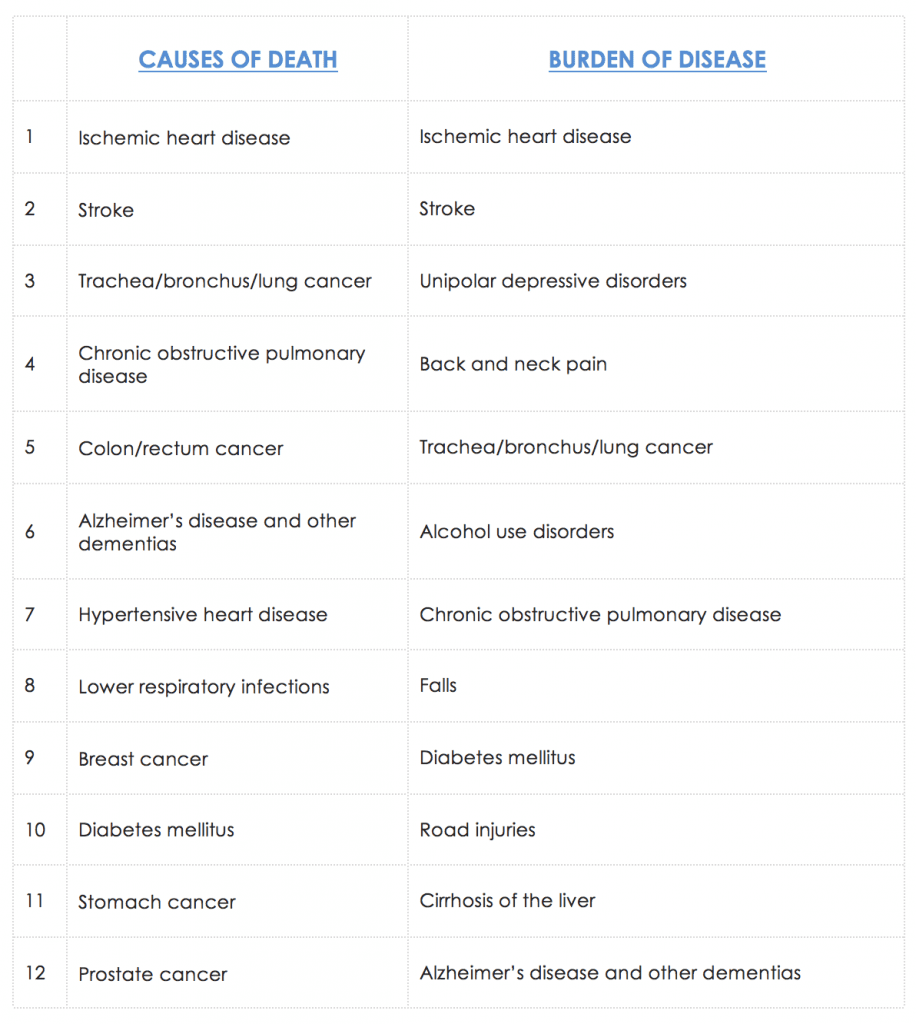WHO Europe region: New network devoted to building capacity and exchanging findings regarding the burden of disease in the region.
The network, consisting currently of representatives from 10 Member States in the Region, will have their first meeting in London on September 21 and 22, 2016. The participating countries are:
- Belgium,
- Denmark,
- Germany,
- the Netherlands,
- Norway,
- Portugal,
- the Russian Federation,
- Serbia,
- Sweden,
- Switzerland and
- the United Kingdom.
Burden of disease approach
The burden-of-disease approach brings together measures of mortality, morbidity and disability in order to analyse the effect of disease on populations. Whereas public health is often strongly focused on causes of death, a burden-of-disease approach is more comprehensive, acknowledging people’s experience of real life. It examines the effects of disease and disability in terms of disability-adjusted life-years (DALYs), which reveal the effects of disease on health with age taken into account.
This approach places disability at the centre of considerations of well-being and life expectancy, and also makes it possible to examine the economic impact of disease. WHO has been a strong advocate of this approach since the 1990s.
What ruins lives and well-being?
Dr Claudia Stein, Director of the Division of Information, Evidence, Research and Innovation said:
It’s not enough to just register why someone dies. People’s lives are often blighted by diseases that do not kill but disable them and cause pain – depression and back pain, for example, can have a terrible effect on people’s lives.
The burden-of-disease approach makes sure that these also count and can be taken into consideration when planning health services, making a difference to both the individual and the health system as a whole.”
At least 8 of the 53 Member States of the Region have already conducted studies on the burden of disease (Belgium, France, Germany, Italy, Poland, Portugal, Spain and the United Kingdom).
Top 12 causes of death versus top 12 causes of burden of disease in the Region (*WHO 2012)
Harmonizing burden-of-disease methodologies in the Region
Burden-of-disease methodology is complex and used in variable ways. This can lead to difficulties in comparing studies and can affect the quality of the conclusions drawn from them. The WHO network, which is part of the European Health Information Initiative, aims to harmonize methodologies across countries and enable meaningful knowledge exchange.
WHO Europe is organizing the network’s first meeting, which is co-hosted by the Institute for Health Metrics and Evaluation at the University of Washington (USA) and Public Health England.
The meeting will bring together experts from all participating Member States as well as Estonia and Georgia.

